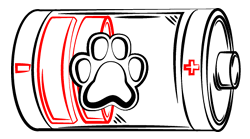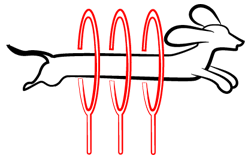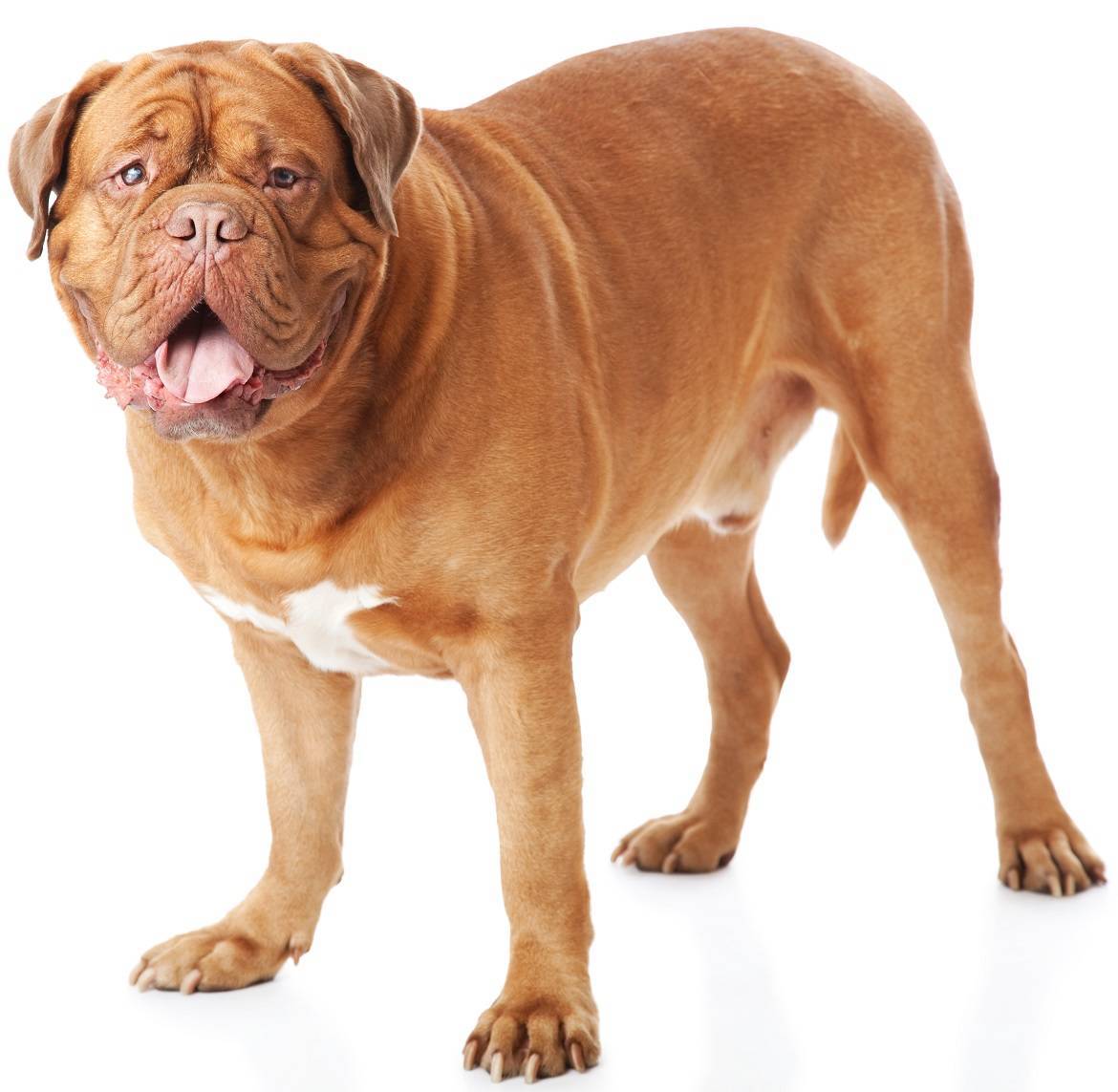
Paws ‘N’ Pups Quickview
Size
| Energy Level
| Trainability
| Paws ‘N’ Pups Rank
|
Characteristics
| Physical Characteristics: Height: 23-26” Weight: 120-140 lbs. Energy Level: Moderate | Colors: The American Kennel Club recognizes the Dogue de Bordeaux in the following colors:
|
Health & Longevity
Average Life Span: 5-8 years
Gentle and gigantic, the Dogue de Bordeaux is one of the largest purebred pups in the world. Due to their size and generations of questionable genetics, their health however suffers. These pups are rare, so their genetics are limited to specific breeders around the world. Limited breeding has yet to iron out the health issues that a Dogue de Bordeaux may develop. In addition to the breed-specific health conditions, these pups are prone to the usual health problems, such as bone cancer and heartworms, that plague dogs of all breeds.
Two of the most common health conditions that a Dogue de Bordeaux could inherit are:
Bloat
This condition occurs when fluid and gas build up inside the stomach, causing distortion and twisting that traps the contents. Painful and dangerous, the symptoms include a distended, swollen abdomen, paleness, weakness, violent vomiting, and labored breathing. Surgery is usually required immediately to relieve the gas before it becomes fatal to the pup.
Entropion
Commonly passed through generations, this condition occurs when the outer eyelid becomes inverted. The eyelashes can scratch the eye, leading to painful ulcers or open sores on the eyeball. Surgery is required to correct this condition.
Other health issues that can affect the Dogue de Bordeaux include skin allergies, bacterial skin infections, heart disease, aortic stenosis, and hip dysplasia. The average Dogue de Bordeaux has an unfortunately short lifespan of 5 to 8 years. All the more reason to show these gentle giants love and affection while you can.
Temperament & Train-ability
Calm, devoted, and even-tempered, the Dogue de Bordeaux may have a daunting and intimidating appearance, but he is really a gentle, affectionate pup. He would make a great family dog and he is very protective of his loved ones, but younger children might get in his way. These purebreds are clueless when it comes to how big they are, so they can be accidentally clumsy around younger children and fragile furnishings. He loves to snuggle and cuddle though, so older kids would have fun forming a lasting bond with this big baby.
Socialization from a young age is important for the Dogue de Bordeaux. While tolerant of children and loved ones, he is wary of strangers, which can lead to aggression if he finds them threatening. He also has a problem with unfamiliar dogs, but he would do fine with pups that he has been raised with. Training is crucial to building a well-rounded dog out of a Dogue de Bordeaux. As puppies, these purebreds are rambunctious and can be disobedient. So, establish yourself as dominant. Then implement patience, determination, and a strong voice to teach them important commands, like sit, stay, and stop.
The Dogue de Bordeaux is a chaser, so cats and squirrels beware. Exercise-wise, these pups are energetic and need plenty of daily activities to keep them occupied. Plan a few long walks through your neighborhood. Take a well-socialized Dogue de Bordeaux to romp with new puppy friends at a dog park. Let him run free in a fenced-in backyard for an hour or so and invest in lots of indoor toys, especially ones he can chew on and sling around.
Grooming
Dogue de Bordeauxs boast a short, close-cropped, smooth coat that is easily managed with few grooming requirements. Brush him once per week with a medium-bristled brush to eliminate excess hairs. The real challenge to his grooming regime are his wrinkles. These pups have lots of skin folds, and each one can become infected if dead skin cells, everyday debris, and sweat are left to collect in those wrinkles. Use a baby wipe, or damp cotton cloth, to wipe between his folds. Then dry each wrinkle thoroughly to cut the risk of skin infections.
The Dogue de Bordeaux drools everywhere, all the time, but especially after eating and drinking. Carry a small towel with you to wipe his wrinkly face after he finishes at the water dish. You should also clean his ears once a week to prevent infections. Use a cotton swab and warm water, or vet-recommended ear-cleaning solution, to wipe the outer edges of each ear. Never shove anything into his ear canals as you could painfully, irreparably rupture his ear drums by using Q-Tips or going too deep into his ears. Stick to cleaning what you can see. Leave the rest to the vet.
Diet
Obesity is a problem for Dogue de Bordeauxs, as they are chronic overeaters. Create a meal schedule that consists of two meals per day, preferably breakfast and dinner. The nutritional needs of your Dogue de Bordeaux will vary from the nutritional needs of someone else’s Dogue de Bordeaux, so consult a vet to pinpoint how much you should be feeding your pup.
Generally, the average Dogue de Bordeaux eats 4-5 cups of dry, high-quality kibble for each meal. He also drinks water like a buffalo, so invest in an automatic water bowl to keep him hydrated, healthy, and happy.
Looking for a Dogue de Bordeaux?
 Find A Dogue de Bordeaux Breeder |  Dogue de Bordeaux Puppies For Sale |  Adopt A Dogue de Bordeaux |
Cost
While their size makes them a popular pup, their lifespan makes them a rare breed that very few breeders would dabble in. The litters are small and usually performed via expensive C-section because of the size of each pup’s head at birth. You are unlikely to find a Dogue de Bordeaux at an animal shelter, but you could call around to check—just in case. Adoption fees are, thus far, unheard of for these breeds.
If you have your mind and heart set on a Dogue de Bordeaux as your animal companion, breeders charge anywhere from $1200 to $2500 for purebred puppies. Most of these puppies are AKC registered and checked against AKC quality standards, so you get the best of the breed from a trustworthy, reliable breeder.
Paws ‘N’ Pups Ranking
Paws ‘N’ Pups ranks every breed out of 4 with 1 being easiest to integrate into your life and 4 being the toughest – The lower the ranking the better.
Ranking takes into account a few basic factors including cost, skill level needed, high vs low maintenance and how critical regular training is to success. The Dogue de Bordeaux is a 2 on the integration scale, sliding from a number 1 ranking mainly due to his abundant size. He would make a great watchdog and good guard dog, especially because he is naturally protective of his loved ones. Training is generally easy, but you may hit a few snags when he chooses to show his stubborn side.
He would make a good, calm family pet because he is tolerant and peaceful around older children, but he might accidentally knock younger kids down with his bulk. Overall, a sweet, good-natured pup to have, despite his unfortunately short lifespan. All the more reason to spend every moment of time with him!
Breeds Similar To Dogue de Bordeaux
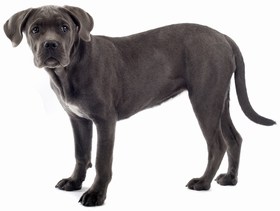 Cane Corso | 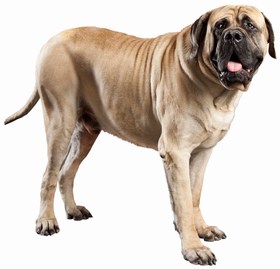 Mastiff | 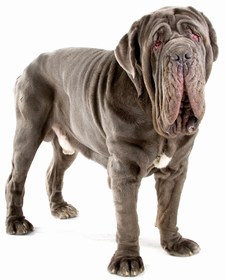 Neapolitan Mastiff | 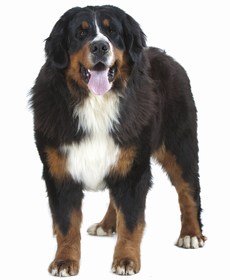 Greater Swiss Mountain Dog |


